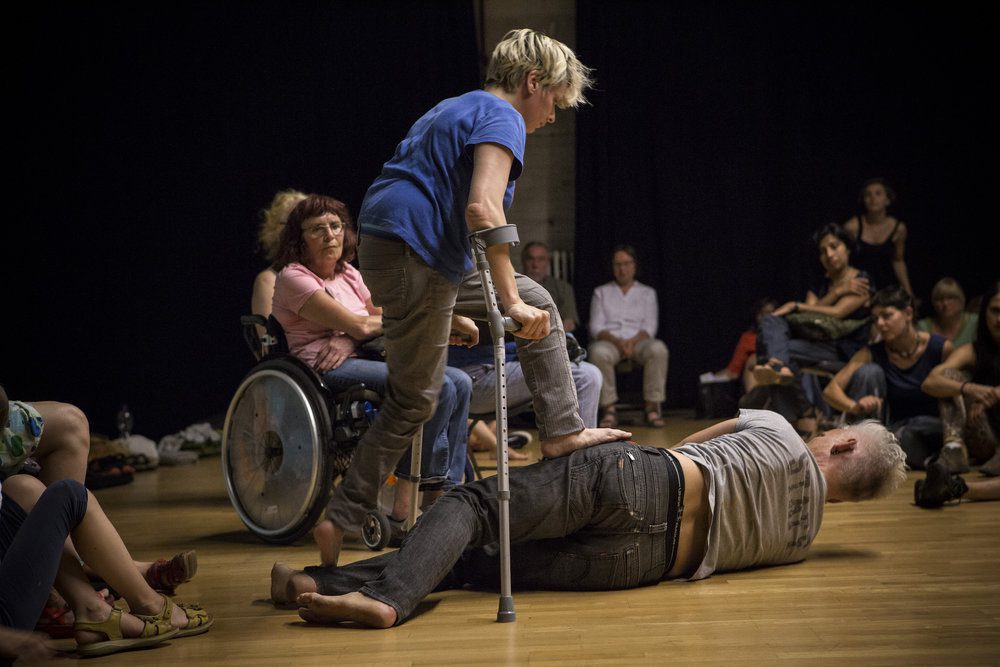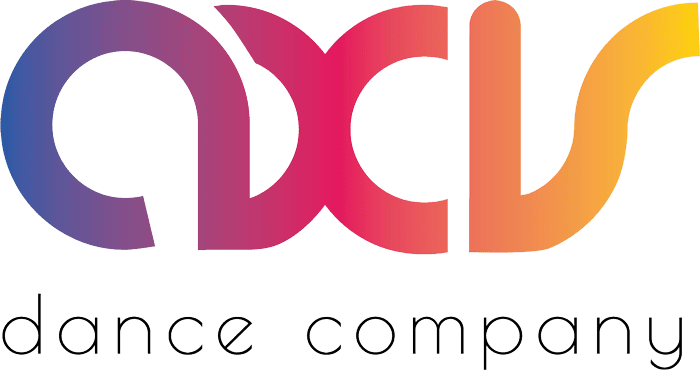Disabled artists are not automatically more fragile than other artists. However, safety is a cornerstone value in disability arts, culture, and organizing. Very often, disabled people are entirely left out of emergency readiness planning, which increases the need for thorough safety planning.

Photo by Sven Hagolani of Claire Cunningham & Jess Curtis performing in The Way You Look (at me) Tonight.
Courtesy Jess Curtis/Gravity.
Security staff is a good example of the complex interplays of access and safety. For some, a security guard may be the first person who can help get something we need. For others, security guards, metal detectors, and unclear connections to law enforcement presence can destroy the possibility of safety.
Questions
- How do people who work and visit your space learn about what to do if there is an emergency?
- Do you have emergency plans (fire, flood, evacuation, active shooter, etc.)? How might they need to be edited to include disability-specific information?
- Does your staff treat disability access features as a threat? For example, do ushers treat canes or walkers as dangerous? Are service animals (distinct from pets) safe and welcome?
- Do you require masking in an ongoing COVID pandemic, which is now severely under-monitored since the end of the U.S. federal Public Health Emergency in May of 2023?
- Is there a place where disabled people can find support in your venue/space?
- Do you have a designated low-stimulation space for people who experience sensory overload?
- Do you allow people to use phones in your venue/space, which is often a necessity for people using certain access features through their personal devices?
- Have you communicated with wheelchair users who are traveling by plane? Complete destruction and a lack of compensation for expensive chairs are the norm in U.S. air travel. Does your venue/space have backup chairs? Keep in mind that the match between a disabled person and their wheelchair is extremely important for their health and safety. Clunky hospital chairs may be useful in an emergency but they are not long-term solutions.
- Do you have remote/hybrid options for those who cannot safely venture to your venue/space physically?
- Do you have an emergency medical kit with commonly used items, like inhalers, insulin, EpiPens, etc.?
